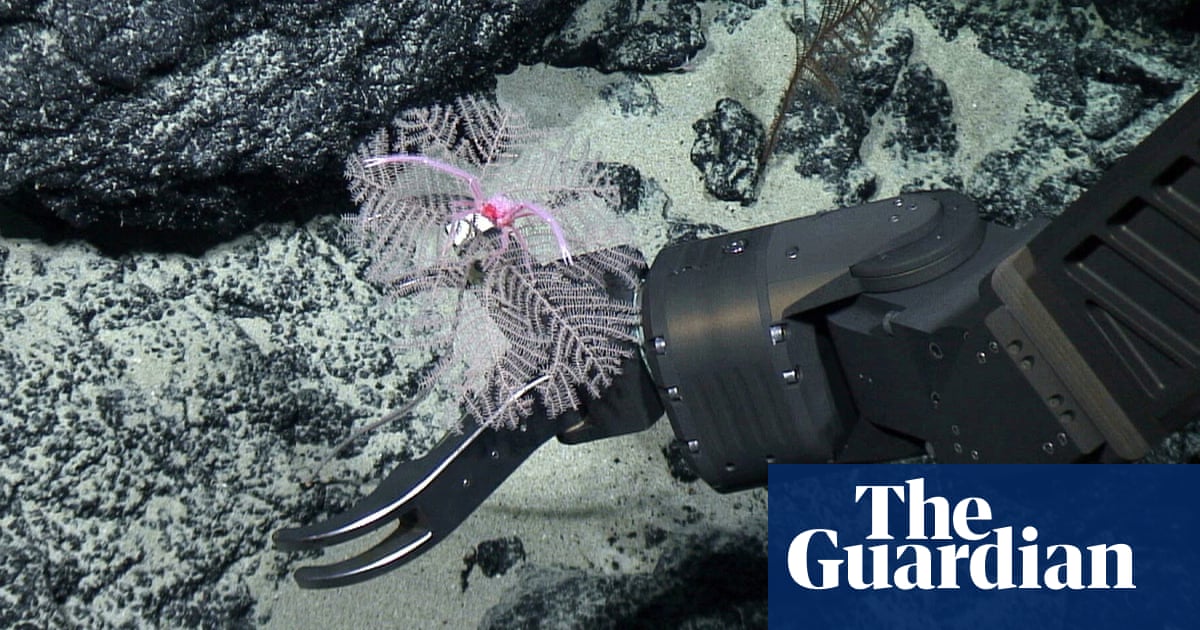The Norwegian government has paused its plans to mine the deep sea in the Arctic, after pressure from a small leftwing party.
The agreement was reached after the Socialist Left (SV) party said it would not support the government’s budget unless it halted the first round of licences for deep-sea mining exploration, planned for the first half of 2025.
“This puts a stop to the plans to start deep-sea mining until the end of the government’s term,” said Kirsti Bergstø, the leader of the SV party.
In January, Norway became the first country in the world to give the go-ahead to commercial deep-sea mining, after parliamentary approval. The coalition government said that while the licences had been suspended preparatory work would still continue, including carrying out an environmental impact assessment and setting regulations.
“This will be a postponement,” the prime minister, Jonas Gahr Støre, from the Labour party, told the private broadcaster TV2 on Sunday.
Environmental groups described the news as a “historic win” for ocean protection.
Oslo had planned to let companies apply to mine 280,000 sq km (108,000 sq miles) of its waters, an area greater than the UK, for deep-sea minerals.
“After hard work from activists, environmentalists, scientists and fishermen, we have secured a historic win for ocean protection, as the opening process for deep-sea mining in Norway has been stopped,” said Haldis Tjeldflaat Helle, a deep-sea mining campaigner at Greenpeace Nordic.
Norway is being sued by one of the world’s largest environmental groups, WWF, over its move to open up the seabed for mining. WWF claims it has failed to properly investigate the consequences. The Norwegian Environment Agency, which advises the government, has also said the impact assessment does not provide a sufficient scientific or legal basis for deep-sea mining.
The plans have also met international opposition. In February, the European parliament expressed its concern over Norway’s decision, and called on member states to support a moratorium.
The government has said an official study showed that substantial accumulations of metals and minerals, ranging from copper to rare earth elements, had been found on its continental shelf. It argues such metals are needed for the green transition to fossil fuels.
A coalition of 32 countries, including the UK, Germany, France, Canada and Brazil, has called for a moratorium on deep-sea mining in international waters.

